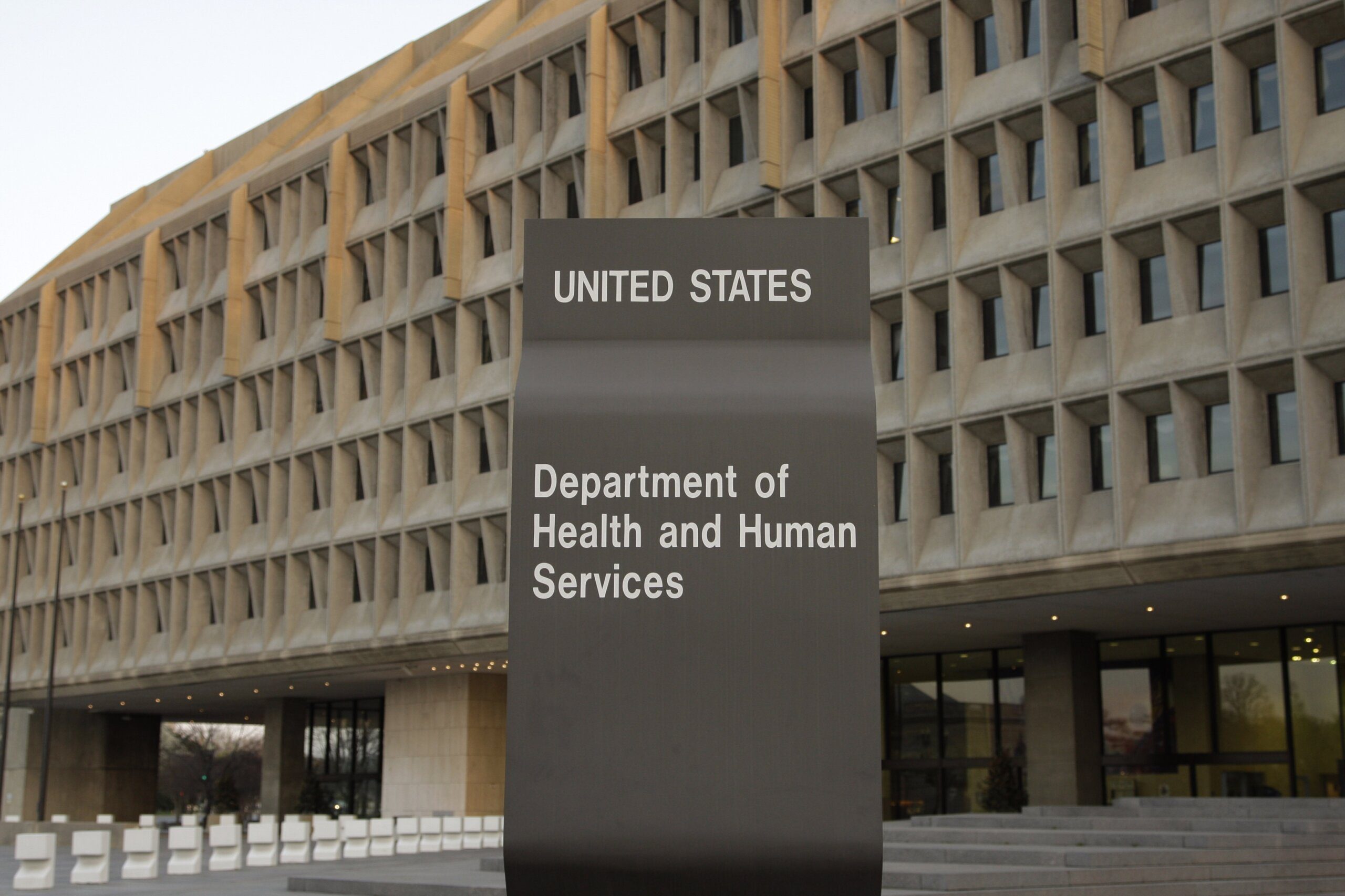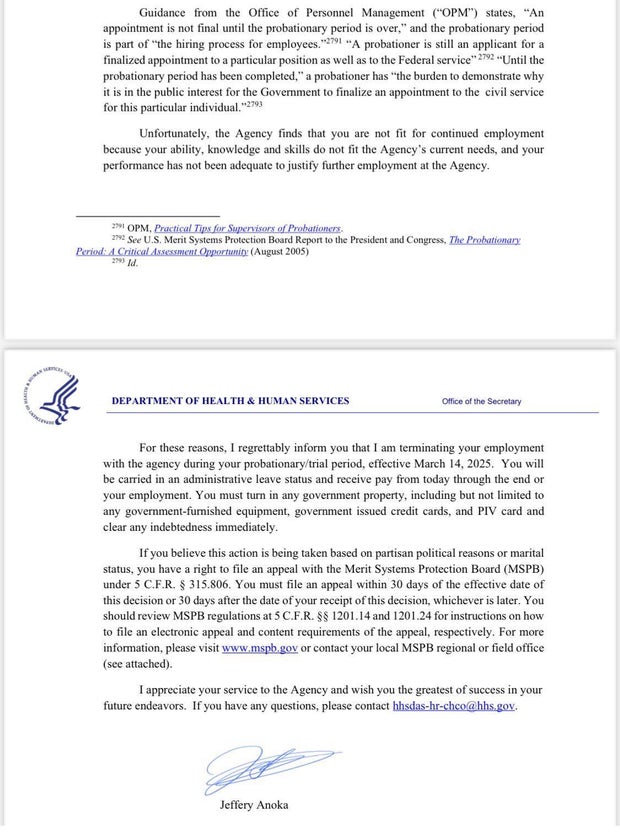
On Saturday evening, probationary employees across various federal health agencies within the Department of Health and Human Services received nearly identical termination letters, according to sources cited by CBS News.
Probationary employees from multiple federal health organizations in the Department of Health and Human Services were informed in a series of letters that their employment was being terminated, as reported by CBS News.
The termination letter, which CBS News obtained, included statements such as, “Unfortunately, the Agency finds that you are not fit for continued employment because your ability, knowledge, and skills do not align with the Agency’s current requirements, and your performance has not met the standards necessary for further employment with the Agency.”
This correspondence was signed by Jeffrey Anoka, the acting head of human resources at the Department of Health and Human Services. An insider revealed that thousands of these letters were distributed on Saturday.
Probationary employees are generally those who have held their positions for less than a year, making them more easily terminated compared to permanent federal employees.

This action is part of a broader government initiative aimed at reducing the number of probationary employees, conducted under the Department of Government Efficiency task force (DOGE), which is led by billionaire Elon Musk.
Initially, over 5,000 probationary employees from health agencies were targeted for layoffs, though not all individuals received termination letters on Saturday. Some letters were mistakenly sent to employees who were not meant to be let go, officials indicated.
Certain agencies were also granted exemptions for some personnel amidst rising criticism over cuts affecting entities like the Indian Health Service.
Meanwhile, the CDC’s Epidemic Intelligence Service, often referred to as the agency’s “disease detectives,” managed to avoid the final cut list directed by the Trump administration. However, other fellowship programs within the agency were not as fortunate; for instance, the CDC’s Public Health Associate Program, which places recent graduates in various health departments nationwide, faced elimination.
Additional agencies that experienced layoffs included the Administration for Strategic Preparedness and Response, which manages the country’s pandemic resources, the Food and Drug Administration (FDA), the Centers for Medicare & Medicaid Services, and the National Institutes of Health.
A White House spokesperson stated that individuals exempt from the layoffs included scientists at the CDC and the FDA, along with workers for Medicare and essential healthcare providers.
“This isn’t a random approach to cutting staff; it’s a well-planned strategy to enhance efficiency within the bureaucracy,” the official noted.
Calley Means, an advisor to the newly appointed Health and Human Services Secretary Robert F. Kennedy Jr., supported the layoffs, arguing they went beyond just cost-saving measures. He reiterated concerns expressed during President Trump’s campaign that officials had failed to address the factors contributing to declining life expectancy in the United States.
“It would be unreasonable not to implement changes,” Means wrote in a post on X.
An employee at the FDA reported that among those let go included scientists, engineers, and legal staff from the regulatory body late Saturday.
Notably, layoffs affected portions of the FDA funded by industry fees for application submissions, rather than taxpayer dollars, including divisions overseeing the regulation of tobacco products and medical devices.
The impact of this week’s layoffs reached far beyond probationary workers and fellows. Numerous contractors, who typically have fewer job protections than government employees, were unexpectedly informed this week of their terminations.
A former CDC contractor expressed concern that they were among just two individuals knowledgeable about a project analyzing electronic health records for disease surveillance.
“I worry they will be overwhelmed with tasks and may have to abandon many projects. Some had already started to fall through while I was there,” the contractor stated.
Many scientists, interviewed by CBS News, revealed they had relocated their lives to serve in federal positions, often accepting significant pay cuts in comparison to potential earnings in academia or the private sector. Others had transitioned from contractor roles to probationary employment after years of service with the same agency.
One former National Institutes of Health scientist recounted receiving reassuring feedback in a tearful meeting with supervisors on Friday, who asserted that the decision to terminate did not reflect on their performance, highlighting the progress made since their hiring.
“I can’t express how financially devastated I am,” lamented the former NIH scientist.









